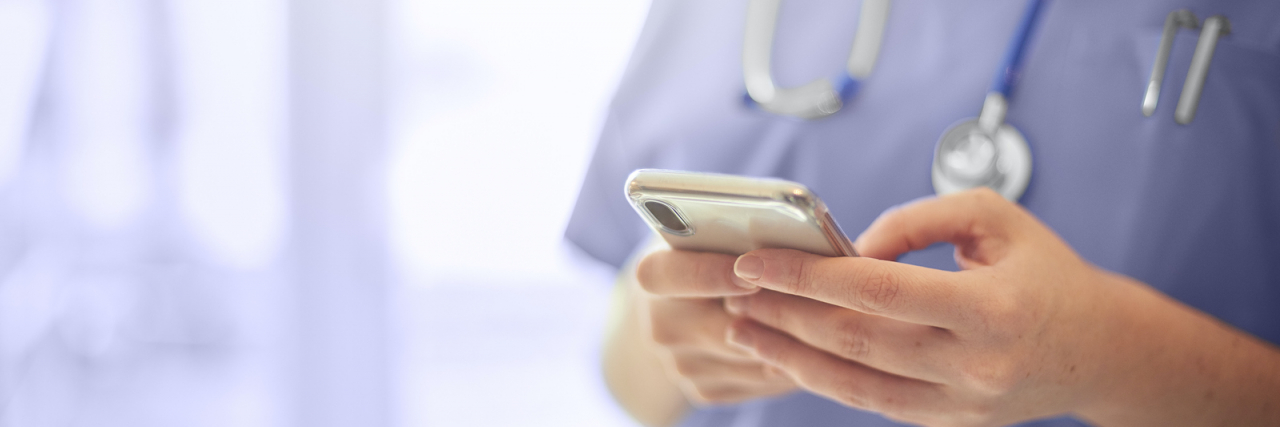Recently, my social media feeds have been filled with not only the chronically ill accounts I follow, but also a new type of short video. Namely, videos created by health care professionals. Spending too much time pondering over one has led to the algorithm feeding me more and more. And I have come to have lots of conflicting thoughts about them.
There seem to be at least a few different categories:
1. Educational videos about a disease or procedure explanation.
2. Comedy about the profession itself (ie burnout, difficult days, sleep deprivation etc.).
3. Day in the life and/or behind-the-scenes style videos.
4. Comedy about difficult patients or scenarios.
As a patient, it is not surprising that the clips that disturb me the most and make me question whether this is a good idea at all are the ones where patients are described. Not many, but some of these are downright wrong and unprofessional. For example, videos “making fun of” a patient who has tattoos but says they are afraid of IVs. I have also even seen videos making light of situations where a patient has said they didn’t need the restroom and then the nurse expresses annoyance when they are called to clean up the room a minute later. Or even someone rolling their eyes to music at “silly questions” they’ve been asked by family members. I feel like I shouldn’t even be writing that that is a thing, but I have seen these multiple times.
I’m sure many of these are common situations that nurses might privately chuckle about, however, in a health care setting I think any kind of judgment, especially if it is then made into a form of entertainment, is wrong. Other types of videos have titles similar to “crazy things patients have said to me after anesthesia” or “weirdest things I have seen in the ER.”
These can be funny, and I understand that in some ways they might have been made in order to help people NOT feel bad if they come to the ER with something they think is “too weird,” or feel better that everyone says funny things after anesthesia. On the other hand, I find any videos referencing a medical situation in a comedic way a little hard to swallow, especially as a very anxious and traumatized patient myself. If I said something to a nurse when I was upset or highly medicated, I would not really feel comforted that she found it funny or used it as an anecdote in a social media post later on.
I appreciate posts from patients a lot more because when it is someone posting on their own terms about themselves and their situation, or using their own dark humor to educate people, that feels more comfortable. Patient posts can be empowering and also very helpful to others when they are talking about their own relatable situation, but not discussing anyone else’s. Of course, I understand that I might have a slight bias as people like to see themselves reflected in things, and I am a patient rather than a nurse or doctor.
With the pandemic, staff shortages, major strikes across the world, burnout, and terrible working conditions, I appreciate the posts and videos made by nurses and other professionals that can be used to bring awareness to the issues many people were unaware of until recently. Showing the difficulties of working 24 hours straight in a video helps people understand how they are feeling and the crises they are facing. These are almost a kind of journalism, documenting crises in health care today and making people aware of what needs to change. I don’t have a problem with that; in fact I find seeing videos like this do make me more patient when, for example, my appointment is delayed.
In general, though, I think it is a very fine line that medical providers when they post anything online. This might be an unpopular opinion because I am aware that some things are very educational and have helped a lot of people. Although, in saying this, we all have to be aware that it is in the nature of the internet that anyone can write or say anything, and so it is not always a reliable place to get medical information or education.
Taking the experiences of very vulnerable people and using them as entertainment or even mockery under the guise of education, when you could convey your point about your life or profession without acting out specific patient interactions, is not something I agree with.
This is a very nuanced issue that will be discussed and debated for years to come, as social media is ever changing. Many of these platforms are so new in comparison to institutions in society, such as health care, and therefore the way they are used has not been set in stone yet, and maybe never will be. But I hope that people only continue to become more considerate and professional as time goes on.
Getty image by MartinPrescott

